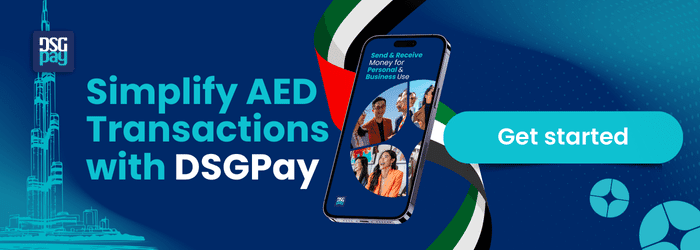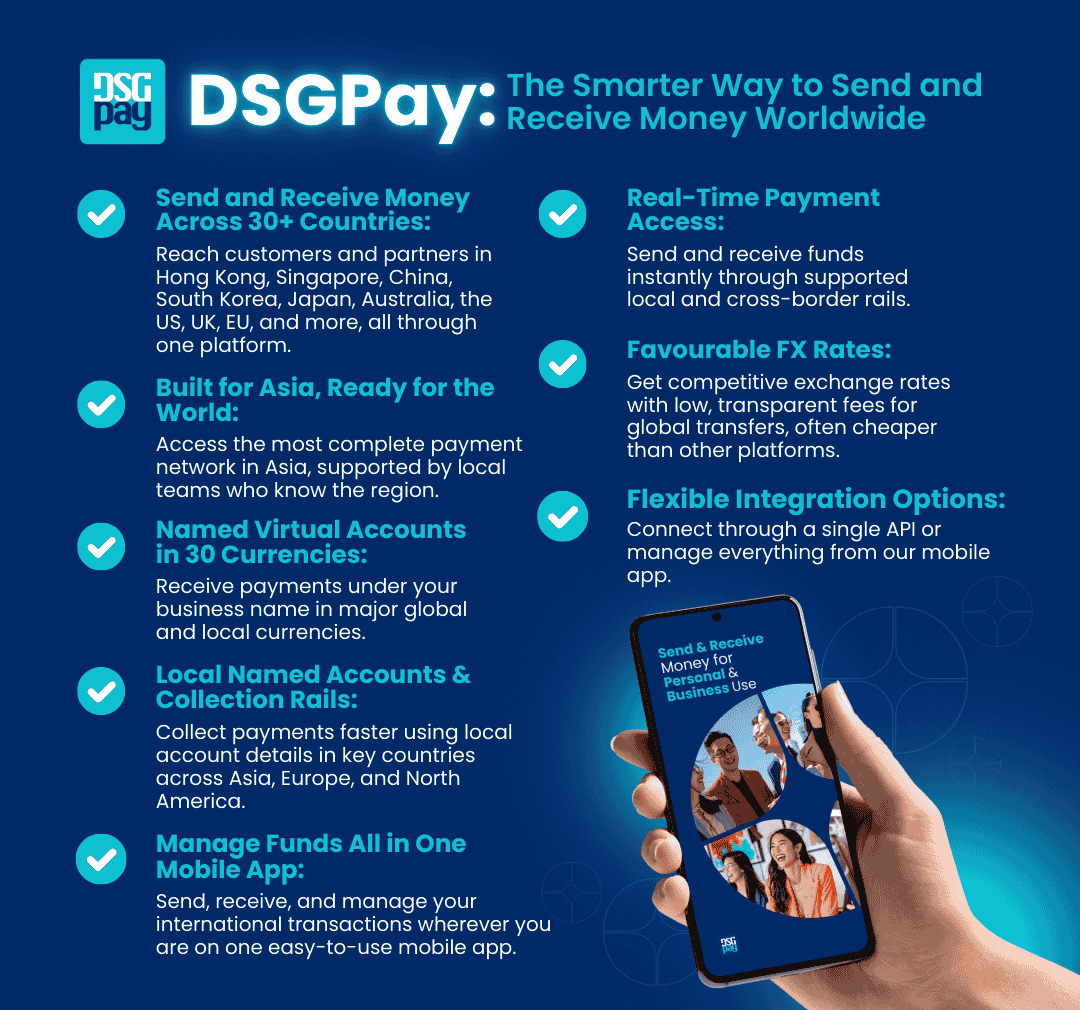Thinking about how to start a business in Dubai? It’s clear why so many entrepreneurs are drawn here. With no personal income tax, low corporate tax, and a location that connects Europe, Asia, and Africa, Dubai has become a global business hub.
The real challenge is knowing how to set things up properly, from choosing the right structure to understanding the costs and timeline.
This guide takes you through it all, step by step, so you can move forward with confidence. So, let’s get started.
Table of Contents
Key Takeaways
- Over 35,000 new companies joined the Dubai Chamber in H1 2025, showing strong growth and confidence in the market.
- You can set up on the mainland for local market access or in a free zone for full ownership and tax benefits.
- Choosing the right legal structure and business activity is key to getting the right licence.
- Setup costs typically range from AED 20,000 to 50,000 depending on location, activity, and visas.
- Most businesses can be launched within 2 to 4 weeks if the documents are in order.
- Virtual accounts are a faster, more flexible option for managing payments compared to traditional banks.
Step-by-Step Process to Start a Business in Dubai
Let’s walk through the main steps together so you know exactly what to do and where to start.
Step 1: Choose Your Business Structure
The very first step when you start a business in Dubai is deciding where your company will be based, either on the mainland or within one of the city’s many free zones. This single choice shapes almost everything else, from who you can sell to and the licences you will need, to the level of control you will have over your business.
Mainland
Setting up a mainland company in Dubai means registering directly with the Department of Economy and Tourism (DET). This route gives you the freedom to operate anywhere in the UAE, sell directly to local customers, and even bid for government contracts.
Since the 2021 reforms, most sectors also allow 100% foreign ownership, giving entrepreneurs far more control than before.
Here’s a quick look at the main advantages and challenges of setting up on the mainland, which will help you decide whether this route is the right fit for your business.
Benefits
- Full access to the UAE market
- Ability to work with private and government clients
- 100% foreign ownership in most sectors and no personal tax
- No limits on office size or number of visas
- Room to scale and expand freely
Limitations
- Higher setup costs compared to free zones
- Physical office required (Ejari registration mandatory)
- Subject to UAE corporate tax
- More paperwork and approvals for regulated activities
- Some companies may need annual audits
Free Zone
Dubai’s free zones were built to make business setup easier and more attractive for entrepreneurs. Each one focuses on a particular sector, creating hubs where similar companies can thrive together.
For example:
- DIFC for finance
- Dubai Internet City for technology
- Dubai Media City for creative industries
- JAFZA for logistics and trade
Free zone registration in Dubai is done through the specific zone’s authority, such as DMCC via the DMCC Authority portal or JAFZA through its official online system.
Free zones come with clear pros and cons. Here’s a quick look to help you see if they fit your business plans:
Benefits
- 100% foreign ownership
- Tax exemptions and duty-free imports
- Lower setup costs and flexible offices
- Quick setup with bundled services
- Strong industry networks
- Easy profit repatriation
Limitations
- Cannot trade directly with the UAE mainland
- Limited to approved activities only
- Need a mainland setup to expand outside the zone
- Visa numbers depend on office size
- May feel less local to UAE-based clients
- Switching sectors may require moving zones
Which to pick?
- Go mainland if your goal is to serve UAE customers or you want maximum room to grow.
- Choose a free zone if you’d rather enjoy full ownership, tax benefits, and a streamlined setup in a sector-specific hub.

Step 2: Pick a Legal Structure
Your legal structure is a key step when you start a business in Dubai, as it determines ownership, liability, and compliance. The available options vary depending on whether you set up on the mainland or in a free zone.
On the Mainland:
- LLC (Limited Liability Company): The most common choice for foreign investors. Flexible and widely accepted, with liability limited to your share.
- Sole Proprietorship: Owned by one person who takes full responsibility. Quick to set up, but offers less protection.
- Partnership: Shared ownership between two or more partners, with rules defined in the partnership agreement
In a Free Zone:
- Free Zone Establishment (FZE): Single shareholder company with 100% ownership.
- Free Zone Company (FZC): Multiple shareholders with full ownership rights.
- Branch of a Foreign Company: Lets you expand your existing overseas company into Dubai while keeping control under the parent entity.
Step 3: Decide on Business Activity
Dubai offers more than 2,000 approved business activities, from trade and consultancy to e-commerce, tourism and manufacturing. When you start a business in Dubai, the activity you choose will decide your licence type and whether additional approvals are required.
On the mainland, you can include up to three activities under one trade licence if they are in the same category, such as consultancy and IT services.
Adding more costs of about AED 750 per activity, but mixing very different categories, like manufacturing and consultancy, is usually not allowed.
Free zones are more flexible, often letting you combine commercial and professional activities under one licence. Some, like Meydan Free Zone, give you access to thousands of approved activities and allow you to group clusters, making it easier to grow.
Step 4: Apply for a Business Licence
Once you’ve chosen your activity, you’ll need to apply for the right business licence:
- Commercial Licence: Trade, import/export, and retail
- Professional Licence: Services, consultancy, and other specialists
- Industrial Licence: Manufacturing and production
- E-Trader Licence: Online and social media businesses
Apply through the Dubai Economy and Tourism (DET) for mainland companies, or through your chosen free zone authority.
Step 5: Register the Trade Name
When you start a business in Dubai, your company name must follow UAE naming rules: it should reflect your activity, avoid offensive or religious terms, and not duplicate an existing name.
It also needs to include the legal form, such as LLC, FZE, or EST. Once approved, the name is reserved for your licence application.
Step 6: Find an Office Space
Every business must have a registered address, and when you start a business in Dubai, your choice of office space will shape both your operations and your future growth.
- Mainland companies: Require a physical office with a valid lease agreement, registered through Ejari in Dubai.
- Free zone companies: Offer more flexible options, from shared “flexi-desks” and co-working spaces to private offices and even warehouses, depending on your business activity.
Your office size can also affect the number of visas your company can sponsor, so it is important to plan carefully. Before signing a lease, ask yourself:
- Is the location convenient for my target customers?
- Does it provide visibility, foot traffic, and easy access by transport or parking?
- Are nearby competitors helpful or harmful to my business?
- Does the layout meet my current needs and allow room to expand?
- Can I afford the rent, service charges, and other costs comfortably?
- Are the lease terms flexible enough to support future growth?
- Does the property meet zoning and licensing requirements for my activity?
- Will this location still make sense three to five years from now?
Thinking through these questions upfront will help ensure the space you choose supports not only your launch but also your long-term success in Dubai.

Step 7: Get Approvals & Submit Documents
Before you can officially open a business in Dubai, you will need the right approvals and to submit the required paperwork. The exact documents depend on your setup, but usually include:
- Passport copies (valid for at least 6 months)
- Passport photos of owners and managers
- Proof of address (can be outside the UAE)
- Initial approval from DET or your chosen free zone
- Memorandum of Association (MoA) or Local Service Agent (LSA) agreement, if required
- Business plan (sometimes needed for certain activities)
Once everything is approved and the fees are paid, your business licence will be issued.
Step 8: Apply for Visas
After setting up your company, you can apply for visas linked to your business.
These typically include:
- Investor visa: For yourself as the business owner.
- Employee visas: The number you can sponsor usually depends on the size of your office space.
- Family visas: Once you hold a valid residency visa, you can also sponsor your spouse, children, and, in some cases, parents.
Visa applications involve medical tests, biometrics, and obtaining an Emirates ID.
Step 9: Set Up Your Business Account
Once your company is licensed, the next step is setting up a business account to manage payments.
Most entrepreneurs look at two main options:
1. Traditional corporate bank accounts
Major institutions like Emirates NBD, Mashreq, FAB or HSBC are the usual choice.
These accounts:
- Carry credibility with clients and government bodies.
- Works well for larger transactions and contracts.
- But requires a lot of paperwork, a physical office lease, and sometimes a high minimum balance.
2. Virtual accounts
Fintech providers have made banking much easier for new businesses.
These accounts:
- Can be opened quickly, often fully online.
- Require fewer documents and have lower fees.
- Make handling multi-currency payments and cross-border transfers simple.
- They are ideal for startups, SMEs and e-commerce businesses that need flexibility.
Many entrepreneurs who start a business in Dubai begin with a virtual account to launch quickly, then open a traditional bank account later as the company grows and needs more formal banking relationships.
Benefits of Opening a Business in Dubai
Dubai is more than just a tax haven. It combines financial freedom, global access, and a lifestyle that attracts both entrepreneurs and talent, which is why so many choose to start a business in Dubai.
- Full control: Free zones allow 100% foreign ownership, so you stay in charge without needing a local sponsor.
- Low tax burden: Most companies enjoy 0% personal income tax, and many qualify for 0% corporate tax on income, with added customs perks.
- Global reach: Positioned between Europe, Asia, and Africa, Dubai is a natural hub for trade and expansion.
- Easy to set up: Investor-friendly policies and streamlined processes make launching a business fast and hassle-free.
- Tailored ecosystems: With 20+ free zones designed around industries like tech, finance, and media, you can plug directly into a network that supports growth.
- Strong infrastructure: From modern facilities to advanced tech, the city is built for efficiency.
- Safe and stable: A secure financial hub with a dollar-pegged currency, giving businesses confidence.
- Great lifestyle: High living standards make it easier to attract and retain talent.
How Much Does it Cost to Start a Business in Dubai in 2025?
| Expense | Mainland (DET/DED) | Free Zone |
| Business licence | AED 10,000 – 15,000+ per year | AED 10,000 – 50,000 per year |
| Registration fees | ~AED 5,000 one-time (approvals, MOA, etc.) | AED 5,000 – 15,000 one-time (varies by zone) |
| Establishment card | ~AED 650 per year | ~AED 1,000 – 2,000 per year |
| Visa cost (per person) | AED 3,000 – 7,000 (includes Emirates ID & medical) | AED 3,000 – 6,000 (similar range) |
| Office space | Mandatory physical office (~AED 40,000/year for 200 sq.ft) | Flexi-desk or virtual office from AED 10,000+ |
| Health insurance | From AED 320 per year (basic) | From AED 320 per year (basic) |
| Other costs | Sponsor fee (if required), audits, market fee on rent | Admin fees, audits (for tax benefits) |
| Minimum setup | ~AED 20,000+ | ~AED 12,000 – 15,000+ |
| Typical setup | ~AED 30,000 – 50,000 | ~AED 20,000 – 40,000 |
How Long Does It Take to Start a Business in Dubai?
On average, it takes around 2-4 weeks to set up a business in Dubai, from submitting your application to receiving your licence.
Each stage of the process, such as trade name approval, initial approvals, and licence issuance, usually takes 3-5 working days if your documents are in order.
For those in a hurry, many free zones and authorities also offer expedited services that can shorten the timeline even further.
Important Things to Know Before You Start a Business in Dubai
- Plan for renewals: Company setup is not a one-time cost. Annual business renewal costs in Dubai range from around AED 8,100 in free zones to AED 10,000–50,000+ on the mainland, depending on license type, activity, and visa requirements.
- Be cautious with agents: Some charge inflated or hidden fees for renewals, audits, or extra services. Always ask for a clear breakdown of costs before agreeing.
- Banking requires residency: A business can be registered without living in Dubai, but opening a corporate bank account is much harder without a residence visa and an Emirates ID.
- Compare Free Zones carefully: Initial setup costs may look attractive, but yearly renewals can be high.
DSGPay: The Smartest Way to Manage Business Payments in Dubai
Starting a business in Dubai as a foreigner is just the first step, running it smoothly requires the right financial tools.
DSGPay is designed to support SMEs and entrepreneurs with everything they need to manage payments confidently. From opening multi-currency accounts to making seamless global payouts, DSGPay makes it easier to handle both collections and payouts.

Why Choose DSGPay?
- Named virtual AED accounts: Get UAE IBANs under your company name, so clients and partners see your brand on every transaction, building trust and simplifying reconciliation.
- Local AED collections: Accept payments from UAE clients in their local currency through DSGPay’s domestic rails for faster settlement and a smoother customer experience.
- Fast AED payouts: Transfer AED directly to UAE bank accounts using local rails that are quicker, more reliable, and more cost-effective than international transfers.
- Multi-currency ready: Collect, convert, and transfer in AED or over 30 other currencies directly from one unified platform.
- No UAE bank account needed: Access local AED payment capabilities without the hassle of opening a traditional bank account in Dubai.
- API and dashboard integration: Automate AED collections and payouts with our developer-friendly API or manage everything easily via the DSGPay dashboard.
- Digital-first convenience: Monitor balances, send payouts, and track activity anytime, anywhere with the DSGPay mobile app.
Whether you’re collecting payments from clients worldwide or paying suppliers and partners across borders, DSGPay gives your business the flexibility to grow locally and expand globally from day one.
Read more: How to Open a Virtual Account for Your Business.
Conclusion
Starting a business in Dubai is easier than many think. With clear steps, low taxes, and a world-class business ecosystem, Dubai is one of the best places to launch your company in 2025.
The process becomes straightforward once you understand your options, whether setting up on the mainland or in a free zone, and prepare the right structure, costs, and documents.
The real focus begins after setup: running your business efficiently and ensuring smooth financial operations.
With the right planning and the right tools, your business in Dubai can grow faster, scale wider, and connect seamlessly to markets around the world, making 2025 the perfect year to start a business in Dubai.




